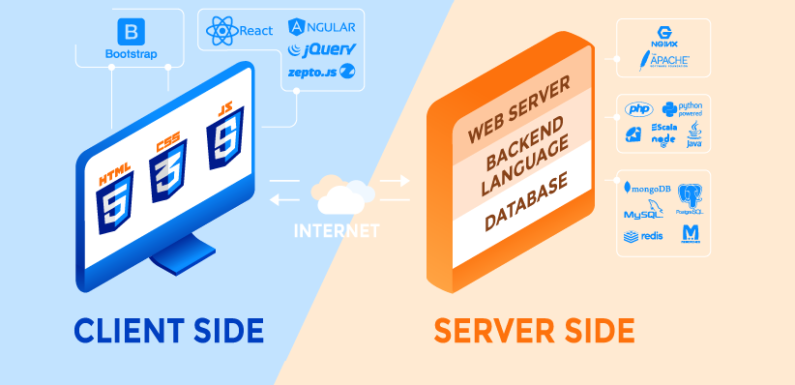Server-Side Scripting: An Overview
Server-side scripting is a web server technology in which the server executes scripts to generate dynamic web pages. Unlike client-side scripting, where the code is executed on the user's browser, server-side scripts run on the server and produce HTML (or other content) that is sent to the client.
Key Components of Server-Side Scripting
1. Languages :
Common languages for server-side scripting include:
- PHP
- Python
- Ruby
- Java
- Node.js (JavaScript)
2. Frameworks :
Popular frameworks that facilitate server-side scripting include:
- Express (Node.js)
- Django (Python)
- Ruby on Rails (Ruby)
- Laravel (PHP)
3. Web Servers :
Server-side scripts run on web servers such as:
- Apache
- Nginx
- Microsoft IIS
Importance of Server-Side Scripting
1. Dynamic Content Generation :
- Server-side scripting allows for the creation of dynamic web pages that can change based on user interaction, database content, or other variables. This results in personalized user experiences.
2. Database Interactions :
- It enables applications to interact with databases, facilitating CRUD (Create, Read, Update, Delete) operations. This is crucial for applications like content management systems and e-commerce platforms, where data must be frequently updated.
3. Security :
- Sensitive data processing and business logic are kept on the server, away from the client’s view. This reduces the risk of client-side attacks (e.g., XSS) and helps to ensure secure authentication and authorization.
4. Session Management :
- Server-side scripts manage user sessions, allowing for stateful interactions. This is essential for features like user logins, shopping carts, and tracking user behavior across pages.
5. Business Logic Implementation :
- Complex business logic can be encapsulated in server-side scripts, maintaining data integrity and ensuring that business rules are consistently applied.
6. API Development :
- Server-side scripting is fundamental in developing APIs (Application Programming Interfaces), enabling different applications to communicate. This is especially important for mobile apps and third-party integrations.
7. Performance Optimization :
- Server-side processing can optimize performance by reducing the amount of data sent to the client. Heavy computations and data aggregations are handled on the server, resulting in faster load times and improved user experience.
8. Cross-Platform Compatibility :
- Server-side scripts can ensure consistent functionality across various devices and browsers, as the processing occurs on the server, regardless of the client environment.
9. Scalability :
- Applications can be designed to scale efficiently through load balancing, caching, and distributed architectures, allowing for handling increased user traffic without performance degradation.
10. Integration with Third-Party Services :
- Server-side scripts can facilitate interactions with various external services, such as payment gateways, cloud services, and social media APIs, enhancing functionality and user engagement.
Conclusion
Server-side scripting is a critical component of modern web development, enabling the creation of dynamic, secure, and efficient web applications. Its ability to interact with databases, manage user sessions, and encapsulate business logic makes it essential for delivering personalized and responsive user experiences. As web applications continue to grow in complexity and demand, server-side scripting will remain a foundational technology in the development landscape.





0 Comments
I really appreciate for your words. Thank you very much for your comment.